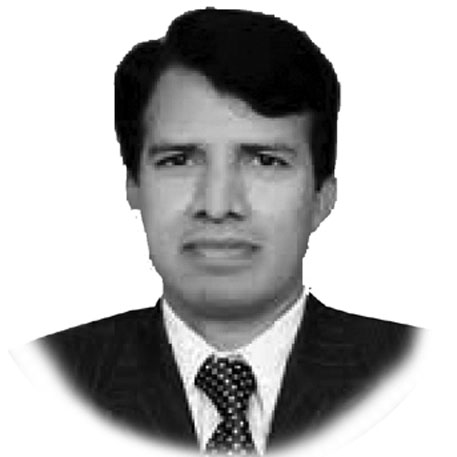Dr Muhammad Khan
IT is agreed by most of the social scientists that there will be drastic societal changes in the post Covid-19 world. For the time being no one can forecast as how long this pandemic would continue hounding the global societies. However, the world will never be the same again. It is not only health and medical institutions, which will have fundamental changes but all spheres of society will be affected in many ways. The envisaged changes, the global society is expected to go through cannot be left unguided and misdirected. It is worth mentioning that there emerged many flaws and inhuman practices in global societies in the first two decades of 21st Century. The global society was heading towards fragmentation based on social intolerance, religious prejudices, cultural bigotry, political marginalization and economic materialism. Emergence of these socio-political and socio-economic trends had pushed the pre-pandemic world of 21st Century towards a conflicting global society.
The travel ban on the citizens of some Muslim States by President Trump, immediately after he took over the reign, was a demonstration of this international prejudice. Moreover, the wider alienation and exploitation of the Muslims, depriving them from their basic right of citizenship through constitutional amendments in India and Myanmar are a clear reflection of this emergence of more societal fault lines at the social level, at intra and inter-state and above all the global subjectivities. Nevertheless, the people with conscious and humanity in almost all the international societies had the feeling that the world is heading towards an inappropriate direction which may lead to ultimate devastation. In the post-Covid-19 world, no one would like a repeat of pre-pandemic 21st Century polarize global society. Everyone in the post-Covid-19 world would like an all-inclusive society free of state and social exploitation. The post-pandemic global society must be founded on the solid foundations of human value system, envisaged in the Holy Quran and Sunnah. Since Islam is a religion for entire world, therefore, the golden values and moralities enshrined in its teaching must be echoed for the learning and adoption at international level. Let’s have a cherished world of egalitarianism, where human rights are secured, where there is a rule of law which timely disburse social and judicial justice and above all it is an all-inclusive and unbiased international society.
In order to reshape such an all-inclusive world, the role of universities and institutions of higher education deems most crucial, significant and necessary. For undertaking such challenging and gigantic tasks, the universities will have to assume the leading role in the post Covid-19 world. They will have to formulate the strategies as guiding principles to be followed by the future societies at global level. Otherwise, the primary aim of education is to teach the individuals within society for preparation of an all-inclusive and aware society where values and norms attain supremacy. Education plays the primary role for socializing the individuals and to keep society smoothing and unwavering. As institutions of higher learning, the universities can be made to create awareness and development of social concord with economic sustainability. While acting as global centres of learning and excellence, universities can make think-tanks to formulate the strategies to develop the norms which will have global adequacy. The focus of post-Covid-19 universities education and guidance should be the development of a progressive, optimistic and humanistic world for all mankind, irrespective of their place of origin, cast, colour and creed and the belief system.
The yardstick for measuring the role, contribution and successes of the universities would be as how much improvement has been noted ‘in the life of the people they serve’. For attaining such a contributory role, there is a dire need that universities and societies are organically linked together. In this varied phenomenon, the justified societal needs should be debated by establishing research centres within universities which deal with aspects like; social-interconnection, economic-dividends, good-governance and the political-dispensations. Indeed, rather creating only scientists and scientific knowledge for a more industrially developed world, there is need for an all-inclusive social world with living human conscious. In reshaping the post-Covid-19 Pakistani society, the universities and institutions of higher education will have a pivotal role. The primary focus of this post pandemic visualized education system should be more social in its orientation. There should be a shift from degree orientation to practical social orientation. Pakistani universities will have serious challenges to negotiate and establish such a system while bridging the existing multiple social fault lines, political polarization and social perplexity. There is a requirement for complete transformation in the existing educational system. Higher education’s role in developing skilled and dedicated manpower and professionals is the need of post pandemic world. There is a need for more collaboration and sharing of information through future higher education system supported by mainstream and social media. While the nation is confronting Covid-19, the universities must start working to develop new educational system. The new educational system should serve as a catalyst for the development of society in such a way that we can face the crisis times with a lot of perseverance and self-respect. Indeed, “this civic spiritedness, this social solidarity, needs to extend beyond the Covid-19 crisis and become higher education’s defining characteristic.”
— The writer is Professor of Politics and IR at International Islamic University, Islamabad.










